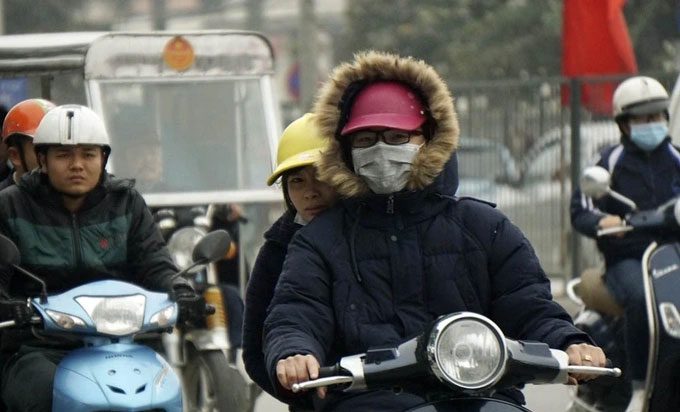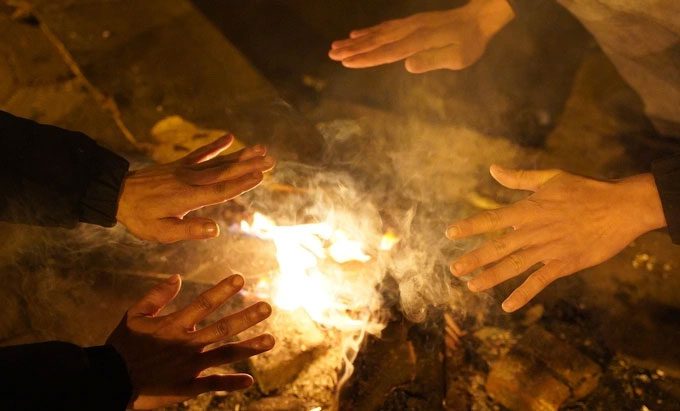Cold weather can impact the body’s ability to fight off viruses and infections, making it crucial to warm and keep the body insulated as temperatures drop.
Increased Risk of Illness
During the winter season, many individuals are at a higher risk of falling ill, particularly children, the elderly, and those with underlying health conditions related to the heart, lungs, or kidneys, including respiratory diseases.
This is also the time when various seasonal illnesses emerge, such as flu viruses, adenoviruses that cause sore throats, and viruses leading to pneumonia and meningitis! They take advantage of our weakened immune system during the winter to attack the body.
Therefore, we must keep ourselves and our homes warm.

Cold temperatures make our bodies more susceptible to illness; people need to keep warm (Illustration: Hữu Nghị).
Keep Yourself and Your Living Space Warm
When temperatures drop significantly, the body often seeks warmth. Caution is needed to avoid using charcoal for heating in enclosed spaces, as this poses many dangers.
For personal warmth, it is better to wear multiple thin layers instead of a single thick garment, as this helps reduce the cold air that can penetrate the body.
Additionally, when going outside, individuals should equip themselves with jackets, hats, scarves, gloves, and appropriate footwear. It is also advisable to wear warm socks and thermal underwear at night to maintain body warmth and protect the skin from UV rays.
It is important to note that there are two types of UV rays: UVA and UVB. UVB can cause sunburn and skin damage. Even in winter, while sunlight is weaker and UVB rays are significantly reduced, UVA rays can still penetrate through cloud layers, leading to skin damage, accelerated aging, and the appearance of brown spots.
Furthermore, we should heat our bodies and living spaces using a heating system.
Avoid using charcoal for heating in closed rooms, as the combustion of these materials produces carbon monoxide (CO), a colorless and odorless gas that can cause unconsciousness and death when inhaled in large quantities.

Using charcoal for heating in enclosed spaces produces dangerous CO gas (Illustration: Ngọc Huyền).
In fact, there have been recorded incidents of fires caused by using charcoal for heating.
During winter, with weaker sunlight, the human body faces challenges in synthesizing vitamin D, which can lead to fatigue.
To combat this, we should take advantage of the moments when UVB rays are present in winter, which are beneficial for the skin.
In this regard, mornings between 9 AM and 4 PM are ideal for sunbathing. However, caution should be exercised around young children, as this is also when UVA rays are more intense and can harm the skin of infants and toddlers.
Moreover, we must maintain a balanced, healthy diet, focusing on hot, nutritious dishes and fruits to provide essential nutrients and keep the body warm.


















































